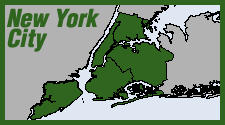 Deputy Attorney General James Cole, the same who authored a notorious 2011 memo asserting that federal cannabis enforcement remains a "core priority" even in states that have passed medical marijuana laws, has just issued a new memorandum seeming to clarify Justice Department reaction to the legalization measures in Colorado and Washington state. While it is written in the usual dense bureaucratese that often hides as much as it reveals, on balance it appears to represent a retreat from the hardline posture the Obama administration has assumed regarding medicinal cannabis over the past two years. The text of the Aug. 29 memo is provided by our comrades at CelebStoner:
Deputy Attorney General James Cole, the same who authored a notorious 2011 memo asserting that federal cannabis enforcement remains a "core priority" even in states that have passed medical marijuana laws, has just issued a new memorandum seeming to clarify Justice Department reaction to the legalization measures in Colorado and Washington state. While it is written in the usual dense bureaucratese that often hides as much as it reveals, on balance it appears to represent a retreat from the hardline posture the Obama administration has assumed regarding medicinal cannabis over the past two years. The text of the Aug. 29 memo is provided by our comrades at CelebStoner:

 Cannabis is a $1.65 billion industry in New York City, according to a report released Aug. 14 by comptroller and mayoral hopeful
Cannabis is a $1.65 billion industry in New York City, according to a report released Aug. 14 by comptroller and mayoral hopeful  US Attorney General
US Attorney General  A judge for the
A judge for the  Reuters reports that it has reviewed documents revealing the existence of a
Reuters reports that it has reviewed documents revealing the existence of a  Gov. Pat Quinn signed HB1 into law Aug. 1, making Illinois the 20th state to legalize medical marijuana. Nearly 40% of people in the US now live in states that have adopted such laws. The Illinois Compassionate Use of Medical Cannabis Pilot Program Act creates a framework to protect physicians and certain qualified medical marijuana patients from arrest and prosecution. HB1 was passed 35-21 by the Illinois House in April, and 61-57 by the Senate in May. HB1, which is scheduled to sunset in four years, was called one of the most restrictive laws in the country by its Senate sponsor Bill Haine (D-Alton). The new law is set to take effect on January 1, 2014.
Gov. Pat Quinn signed HB1 into law Aug. 1, making Illinois the 20th state to legalize medical marijuana. Nearly 40% of people in the US now live in states that have adopted such laws. The Illinois Compassionate Use of Medical Cannabis Pilot Program Act creates a framework to protect physicians and certain qualified medical marijuana patients from arrest and prosecution. HB1 was passed 35-21 by the Illinois House in April, and 61-57 by the Senate in May. HB1, which is scheduled to sunset in four years, was called one of the most restrictive laws in the country by its Senate sponsor Bill Haine (D-Alton). The new law is set to take effect on January 1, 2014.
 Over the past generation, an informal alliance of activists, cultivators, entrepreneurs and medical professionals has struggled to redefine how the United States views the cannabis plant. Victories at state and municipal levels have created a new field of medicinal treatment for a wide variety of ailments in California and other mostly western states. Medical marijuana marks the starkest point in the divide between an industrial model of healthcare and a millennia-long tradition of herbal self-treatment—because nowhere else has the federal government been so intransigent.
Over the past generation, an informal alliance of activists, cultivators, entrepreneurs and medical professionals has struggled to redefine how the United States views the cannabis plant. Victories at state and municipal levels have created a new field of medicinal treatment for a wide variety of ailments in California and other mostly western states. Medical marijuana marks the starkest point in the divide between an industrial model of healthcare and a millennia-long tradition of herbal self-treatment—because nowhere else has the federal government been so intransigent.





Recent comments
1 week 4 days ago
1 week 4 days ago
4 weeks 5 days ago
5 weeks 4 days ago
9 weeks 4 days ago
13 weeks 3 days ago
17 weeks 3 days ago
18 weeks 1 day ago
28 weeks 1 day ago
32 weeks 2 days ago